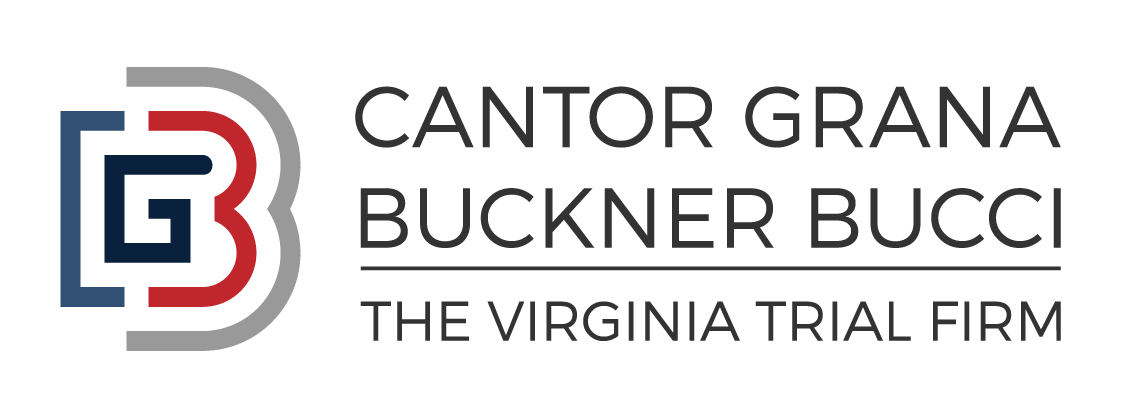Why You Should Always File a Police Report After a Car Accident
Experiencing a car accident, minor or severe, can be incredibly stressful. Amid the chaos, it might be tempting to forego official processes like filing a police report, especially in cases where the damage appears minimal. However, such a report can sometimes be an essential piece of evidence when dealing with insurance companies or potential legal matters that may surface later. Filing a police report following a Virginia car accident is important, even when it seems unnecessary at first glance. It’s always better to be safe than sorry.

Need Help With a Car Accident Claim?
The law firm of Cantor Grana Buckner Bucci is here to help if you have been injured in a Virginia car accident. Our experienced attorneys can guide you through the process and ensure that your rights are protected every step of the way. We understand that being involved in a car accident is a traumatic experience, and we will work tirelessly to get you the compensation you deserve. Contact us today for a free consultation.
The Role of Police Reports in Car Accident Claims
The significance of police reports in the aftermath of a car accident cannot be overstated. This official document serves multifaceted purposes, ranging from establishing a factual account of the incident to influencing fault determination and aiding in legal proceedings.
Evidence of the Incident
A police crash report stands as a pivotal piece of formal documentation, capturing a comprehensive record of the accident’s details. This documentation encompasses crucial information such as the date, time, and location of the incident, weather conditions, and statements from involved parties and witnesses. This thorough overview is invaluable in resolving disputes and providing clarity on the sequence of events.
Establishment of Fault
One of the primary functions of a police report is the inclusion of the officer’s professional assessment regarding the determination of fault. Although generally inadmissible in civil trials, this assessment, often based on the officer’s investigation and observations at the scene, holds weight in negotiations with the insurance company. Insurance companies frequently rely on the police report’s findings to ascertain liability, aiding in the prompt resolution of claims. The objective evaluation provided by law enforcement can significantly impact the car accident claim process, helping to determine compensation and responsibility for damages.
Aiding with Legal Proceedings
In situations where a car accident leads to legal proceedings, the police report becomes a helpful piece of evidence. Attorneys use this document to construct a compelling case on behalf of their clients. The comprehensive information contained in the report, including statements from involved parties, witnesses, and the officer’s findings, strengthens the legal team’s ability to argue the case persuasively. Whether the dispute reaches a courtroom or is settled through negotiation, the police crash report serves as a foundational document supporting the injured party’s claims. Do note that a police report is not admissible as evidence in court, but as stated above, is a pivotal document in pre-litigation investigations as well as determining insurance claims.

What Information Does a Police Report Contain?
Incident Details: The report provides a comprehensive record of the accident, including the date, time, and location of the incident.
Weather and Road Conditions: It documents the state of the weather and the condition of the road at the time of the accident.
Involved Parties: The report lists all parties involved in the accident, including their contact and insurance information.
Witness Statements: If there were witnesses to the accident, their accounts are incorporated into the report.
Officer’s Observations: The police officer’s observations and assessment of the accident scene are included.
Fault Determination: The report contains the officer’s professional opinion regarding the determination of fault.
Property Damage and Injury Details: Any property damage or injuries resulting from the accident are detailed in the report.
Citations or Violations: The report will note if any citations were issued or laws were violated.
Are You Legally Required To File an Accident Report?
In many jurisdictions, the law requires the involved parties to file an accident report in the aftermath of a car accident. The specific criteria can vary, often depending on the severity of the accident, whether it resulted in any injuries or fatalities, or if the damages exceeded a certain monetary threshold. For instance, most states mandate reporting if the car accident led to death or injury or if the damage to a vehicle renders it inoperable. Similarly, if the financial cost of the damage surpasses a prescribed limit—typically in the range of $500 to $1000—the accident must be reported. It is crucial to familiarize yourself with the laws in your state or the state where the crash occurred. Failure to file an accident report when required can result in penalties, including fines or even revocation of your driver’s license. Always consult with a legal professional in the event of a car accident to ensure you fulfill all necessary obligations.
How to File a Police Report
Understanding the procedure for filing a police report is crucial in the aftermath of a car accident in Virginia. Below are the steps involved in the process:
Ensure Safety
The first priority following an accident is to ensure the safety of all involved. If anyone is injured, call for medical help immediately. If the scene is hazardous, try to move to a safe location if possible.
Notify the Police
Even in minor accidents, it’s important to call the police. They will come to the scene and fill out an accident report. If the accident is minor and there are no serious injuries, the police may direct you to the nearest station to file the report yourself.
Provide an Accurate Account
When speaking to the police, be as accurate and detailed as possible. Include all pertinent details, such as the sequence of events, any conversation you had with the other driver, and the conditions of the road. Remember to remain calm and truthful in your account.
Collect Information
Gather as much information as possible at the scene. This includes the names and contact details of all parties and witnesses, the make and model of the vehicles involved, and the details of any damage. If possible, take photographs of the accident scene and damage to the vehicles.
Obtain a Copy of the Police Crash Report
After filing the report, ask the officer how you can obtain a copy. This document will be crucial when filing an insurance claim or if any legal proceedings ensue. How you get the documentation will depend on where the accident happened and which law enforcement agency responded.
Bear in mind that the specifics of filing a police accident report can vary depending on the jurisdiction. It is vital to familiarize yourself with the laws in your state or the state where the accident occurred. Always consult with a legal professional if you have any doubts or concerns during this process.

Injured in a Car Accident in Virginia? We Can Help
Our dedicated team at Cantor Grana Buckner Bucci understands the emotional, physical, and financial toll car accidents can take. If you or a loved one have been injured in a car accident in Virginia, we are here to provide the support and guidance you need. We are committed to fighting for the justice and compensation you deserve. Don’t navigate this challenging time alone—contact us for a free consultation today.










